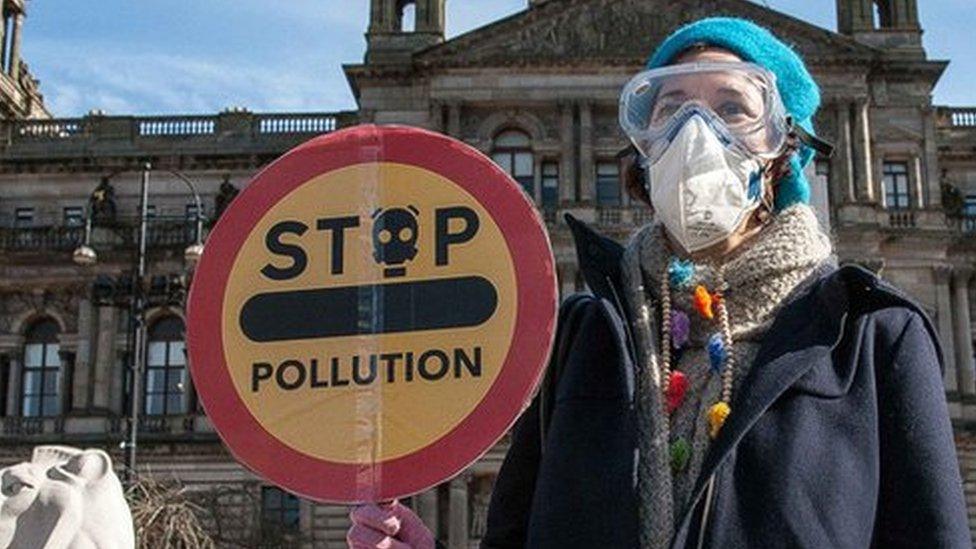Legal challenge told Glasgow LEZ is 'unnecessary'
- Published
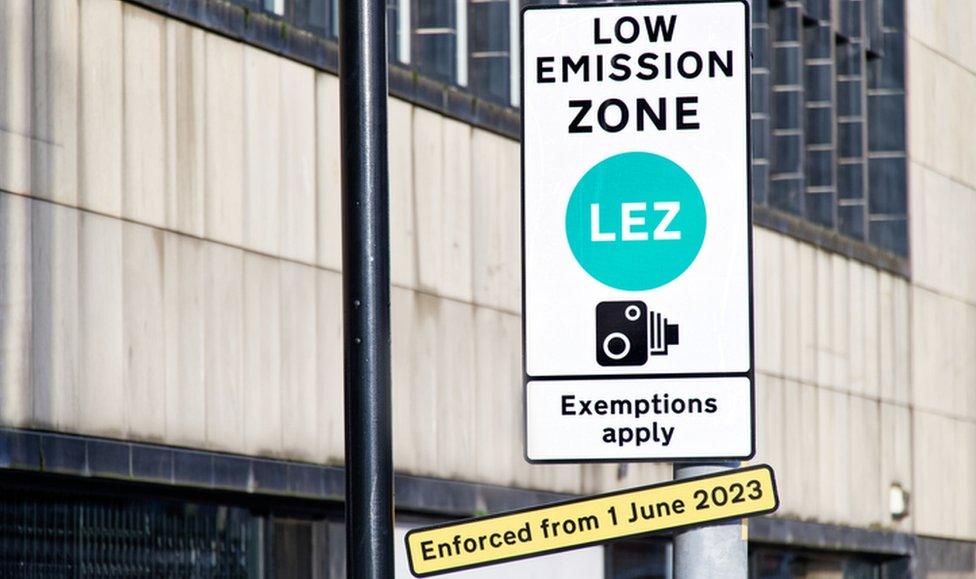
A low emission zone was introduced in Glasgow in June which covers the city centre
A new legal challenge to Glasgow's low emission zone (LEZ) has claimed the measure was illegal and unnecessary.
A lawyer representing a local garage owner told a judicial review that data showed most air quality targets in the city centre had already been met.
His client William Paton believes that showed it was unnecessary for an LEZ to be introduced in Glasgow.
Lawyers for Glasgow City Council and the Scottish government are contesting the action.
The council previously said it would "vigorously defend any legal challenge" to its LEZ.
The second phase of the scheme - which started operating in June - aims to improve air quality by limiting which vehicles can enter the area.
Cars, lorries and other forms of transportation which do not meet emission guidelines are not allowed, and drivers who break the regulations can be fined.
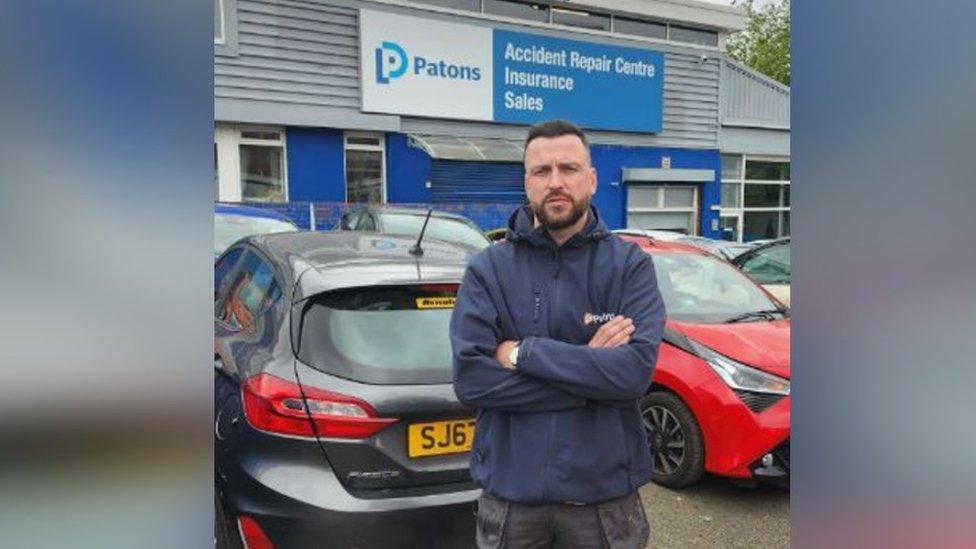
William Paton claims data available at the time showed the scheme was unnecessary
Last month Mr Paton, the company director of Patons Accident Repair Centre in Townhead, was given the go ahead to continue his fight against the LEZ after he said it would have a detrimental impact on his business.
He previously said he had commissioned a report by the Hilson Moran Institute to study the impact of the first phase of the LEZ for buses in the city centre which came into force in 2018.
The report found that air quality aims were achieved in phase one and the second phase impacting other vehicles would not lead to any further improvement in air quality.
Advocate Lord Davidson KC told the Court of Session on Tuesday that the local authority failed to follow established legal tests before making its decision to introduce the LEZ, which covers Glasgow city centre.
He said that there were 27 monitoring stations in the city centre which monitor levels of Nitrogen dioxide (NO2) in the air - the gas which the local authority hopes to reduce.
He told the hearing that 25 out of 27 of the stations had recorded "downwards trends" of NO2 in recent years.
The advocate said that the information available to the council meant that it should not have allowed the LEZ to operate in its present form.
The two stations which had not recorded downward trends were both located on Hope street.
"It is unreasonable of the council to have imposed an LEZ of the entire area because of the exceedances in these two areas. The council's decision was unlawful," he said.
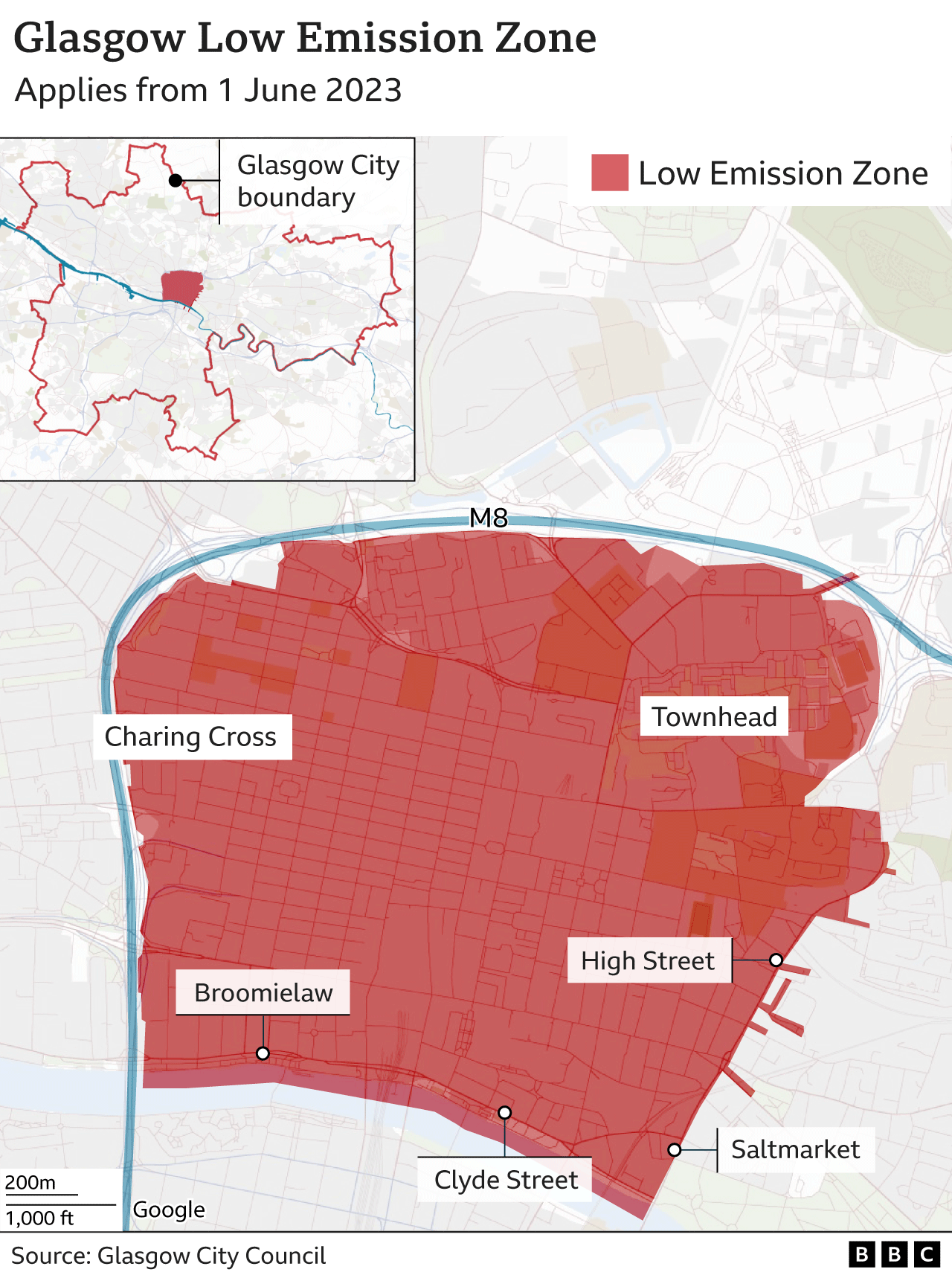
Lord Davidson also spoke in his submissions of how motorists could be fined hundreds of pounds if they repeatedly breached the LEZ, describing the measure as "draconian".
He also said there were other "less intrusive" means available to the local authority to improve air quality.
Glasgow City Council's advocate Ruth Crawford KC told judge Lady Poole that the local authority had acquired evidence about NO2 emissions which gave it a lawful justification to set up a LEZ.
Ms Crawford said the council had regard to different and more extensive types of data which showed that NO2 emissions were a continuing issue in the city centre.
She said this "modelling" gave the council a lawful basis to set up a LEZ.
Ms Crawford added: "In my submission that modelling cannot be properly criticised by the petitioner.
"It cannot be said by any stretch that the decision is irrational.
"Without a Low Emission Zone there would be a continuing problem with exceedances. But with a Low Emission Zone the air quality would be improved."
The hearing, which is expected to last two days, continues on Wednesday.
- Published15 August 2023
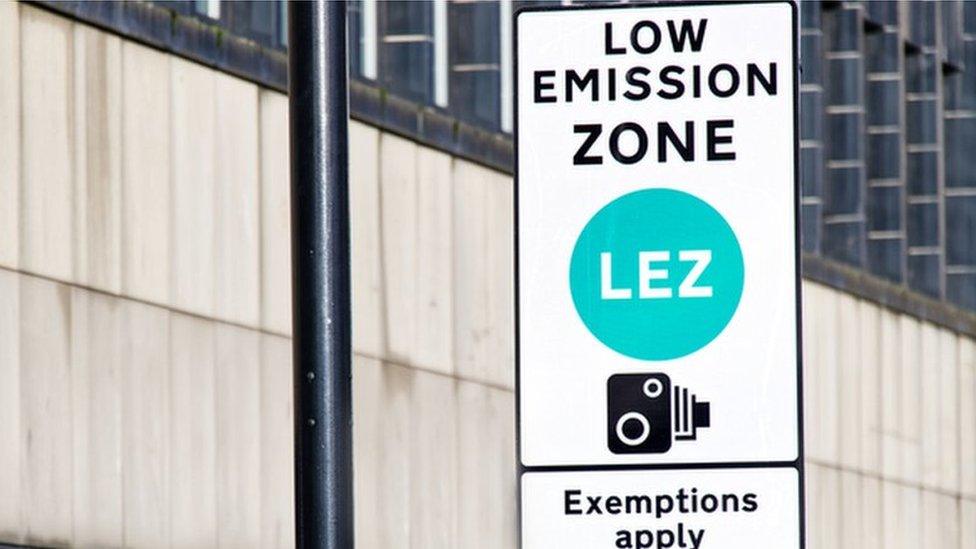
- Published1 June 2023
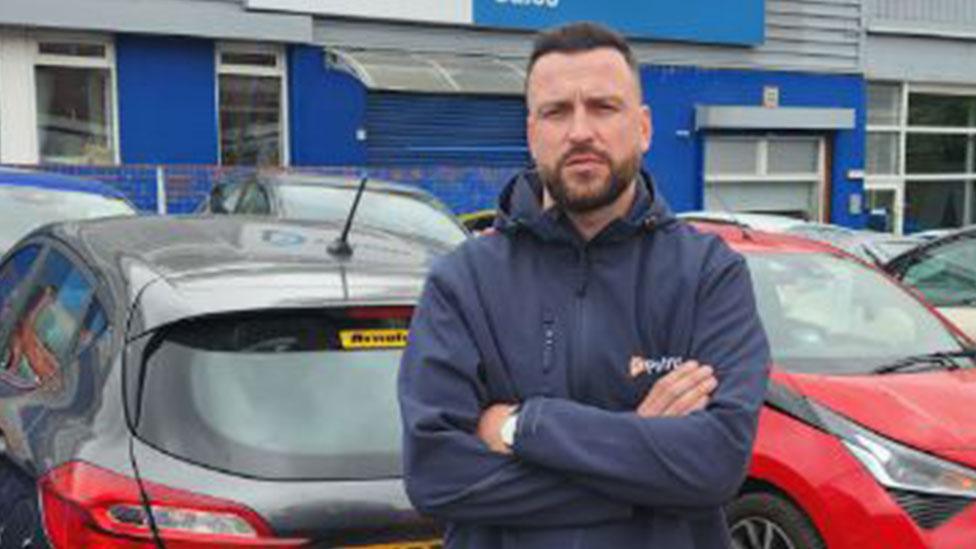
- Published1 June 2023
